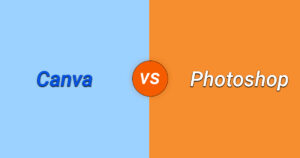The World of Blogging Unveiled: What Is Blogging?
Discover the essence of blogging as we delve into its history, various types, and the motivations that drive bloggers.

In today’s digital age, the term “blogging” has become a household name. It’s no longer limited to a niche group of individuals; instead, it’s a global phenomenon that has transformed the way we share information, express our thoughts, and connect with others. If you’ve ever wondered, “What is blogging?” and want to dive deeper into this fascinating online realm, you’ve come to the right place.
Table of Contents
- Introduction
- Understanding the Basics
- What Exactly is a Blog?
- Who Are Bloggers?
- Evolution of Blogging
- The Early Days
- Blogging Boom
- Types of Blogs
- Personal Blogs
- Business Blogs
- Niche Blogs
- Why Do People Blog?
- Personal Expression
- Knowledge Sharing
- Income Generation
- How to Start a Blog
- Choose Your Niche
- Select a Blogging Platform
- Create Compelling Content
- Building an Audience
- Monetizing Your Blog
- Advertisements
- Affiliate Marketing
- Selling Products or Services
- The Impact of Blogging
- Influence on Society
- Digital Marketing
- Challenges in the Blogging World
- Content Creation
- Staying Consistent
- SEO and Traffic
- Conclusion
- FAQs
1.Introduction
Blogging is an online activity that has evolved significantly since its inception. It has redefined the way we communicate and share information in the digital era. Let’s embark on a journey to explore the world of blogging and understand its various aspects.
2. Understanding the Basics
2.1 What Exactly is a Blog? At its core, a blog is a regularly updated website or platform where individuals or groups of people share their thoughts, opinions, and expertise on various topics. These entries, called “posts,” are typically displayed in reverse chronological order, with the most recent content appearing at the top.
2.2 Who Are Bloggers? Bloggers are the creative minds behind blogs. They are individuals who write, curate, and manage content on their blogs. Bloggers come from diverse backgrounds and write about a wide range of subjects, catering to audiences with different interests.
3. Evolution of Blogging
3.1 The Early Days Blogging emerged in the late 1990s as a form of online diary-keeping. Early bloggers shared personal experiences and thoughts, creating an intimate connection with their readers.
3.2 Blogging Boom As the internet expanded, so did the blogging community. The early 2000s witnessed a blogging boom, with blogs covering an array of topics, from travel and food to technology and fashion.
4. Types of Blogs
4.1 Personal Blogs Personal blogs are a platform for individuals to express their thoughts, experiences, and interests. They offer a glimpse into the blogger’s life and personality.
4.2 Business Blogs Businesses utilize blogs to engage with their audience, provide industry insights, and promote their products or services. It serves as a potent instrument in the realm of digital marketing.
4.3 Niche Blogs Niche blogs focus on specific topics or interests, catering to a dedicated audience. They establish authority and credibility in their chosen niche.
5. Why Do People Blog?
5.1 Personal Expression Many individuals blog as a form of personal expression, sharing their stories and perspectives with the world.
5.2 Knowledge Sharing Blogging serves as a platform to share expertise, knowledge, and information on various subjects.
5.3 Income Generation For some, blogging becomes a lucrative profession. Bloggers can earn through ads, affiliate marketing, and selling products or services.
6. How to Start a Blog
6.1 Choose Your Niche Selecting the right niche is crucial. It should align with your interests and expertise.
6.2 Select a Blogging Platform Choose a user-friendly platform like WordPress or Blogger to create and manage your blog.
6.3 Create Compelling Content Quality content is the cornerstone of blogging. Write engaging, informative posts that resonate with your audience.
6.4 Building an Audience Promote your blog through social media, SEO, and networking to build a loyal readership.
7. Monetizing Your Blog
7.1 Advertisements Display ads from ad networks to generate revenue based on clicks and impressions.
7.2 Affiliate Marketing Promote products or services through affiliate links, earning a commission for each sale.
7.3 Selling Products or Services Create and sell your products or offer services related to your niche.
8. The Impact of Blogging
8.1 Influence on Society Blogs have the power to influence public opinion, mobilize communities, and bring about social change.
8.2 Digital Marketing Businesses leverage blogs for digital marketing, reaching a wider audience and boosting their online presence.
9. Challenges in the Blogging World
9.1 Content Creation Creating high-quality content on a consistent basis can prove to be quite a challenge and often demands a significant investment of time and effort, much like the way a human writer would express it.
9.2 Staying Consistent Maintaining a regular posting schedule is crucial to retain and grow your audience.
9.3 SEO and Traffic Understanding search engine optimization (SEO) and driving traffic to your blog can be complex.
10. Conclusion
In conclusion, blogging is a dynamic and ever-evolving realm in the digital landscape. It provides a platform for individuals to express themselves, share knowledge, and even make a living. Whether you’re a seasoned blogger or just starting, understanding the basics and the potential impact of blogging is essential.
11. FAQs
Q1: Can anyone start a blog? A1: Absolutely! Anyone with access to the internet can start a blog and share their thoughts with the world.
Q2: How long does it take to make money from blogging? A2: Earning from blogging varies, but it often takes several months to a year of consistent effort to see significant income.
Q3: Is it necessary to be an expert in a niche to start a niche blog? A3: While expertise helps, you can learn and grow your knowledge as you blog about your chosen niche.
Q4: What is the most popular blogging platform? A4: WordPress is one of the most popular and user-friendly blogging platforms available.
Q5: Can blogging be a full-time career? A5: Yes, many bloggers have turned their blogs into full-time careers, but it requires dedication and hard work.
Now that you have a comprehensive understanding of what blogging is, you can explore this exciting world.





